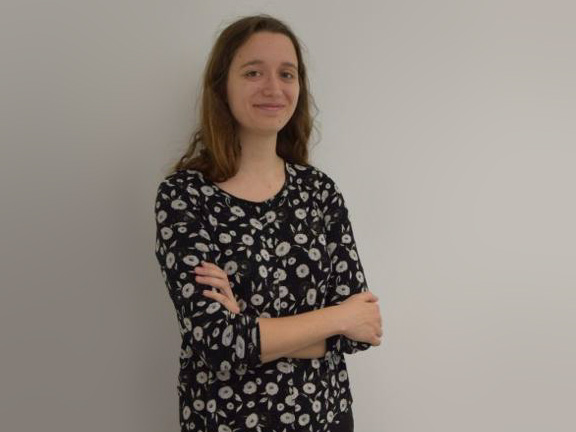Proposal won the 2021 Climate Solutions Challenge

For a lot of students, the first year of university is a time of upheaval. Starting university means new people, new classes, new expectations, new responsibilities, and sometimes, moving far away from home.
It’s the disruption during this period of change that UVic mechanical engineering PhD student Heather Norton is trying to channel into a force for climate good.
Norton won the 2021 Climate Solutions Challenge for her proposal to develop a first-year course that fosters habits that reduce an individual’s carbon footprint.
Good habits from disruption
Norton’s proposal is based on the “habit discontinuity hypothesis,” the idea that it’s easier to change people’s behaviour during times of disruption in their lives. She was inspired by a study that showed moving made people more likely to stick to sustainable habits they were trying to implement.
Just like moving houses, the first year of university is a period of change. Norton says this provides a unique opportunity to get people to adopt behaviours that decrease their carbon footprints, like taking vacations closer to home and eating less meat. The university can also make this happen at a large scale, since there’s a new group of first-years every fall.
“If you can create behaviour change in that first year, that can carry with them for the rest of their life, and is actually one of the most impactful things you can do,” said Norton.
Her proposed course would be offered in first year as a substitute for the academic writing requirement courses. There are two aspects of behaviour change that Norton says would be critical to impart to students.
First, students need an “empathic understanding and sensitivity…to climate change.” In other words, more of an emotional connection to the climate crisis.
“It’s not just your brain, it’s kind of your heart,” said Norton. “So, you want to be more immersive with that.”
At the University of San Jose, which has run a similar course, students participated in a mock climate negotiation to foster this connection.
The other aspect of behaviour change that Norton says is important is making people feel empowered by doing activities that show them reducing their carbon footprint is possible. For example, Norton says, students could measure their carbon footprint, set goals to reduce it, and then track their progress for a week.
Climate Solutions Challenge
Norton proposed the course as part of the Climate Solutions Challenge, a competition run by the university for the first time in spring 2021. The Climate Solutions Challenge was launched by the Climate Solutions Navigator, a multidisciplinary group of campus leaders that seeks to identify areas for climate action.
Kristy Faccer, vice-chair of the Climate Solutions Navigator, says the group was looking for an engaging way to involve students in their planning and to spur the implementation of climate solutions on campus.
“We had…this sense that students were full of really innovative ideas and experience that was very relevant to what we wanted to do on campus,” said Faccer. “We often think of climate being this expert space and I think that the voices and insights of young people is something that as a university we really care about.”
The Climate Solutions Navigator came up with two themes they thought were important to address through the challenge: learning from the pandemic and effectively measuring the effects of climate change.
Norton’s climate behaviour change course fell under the “from COVID to climate” category, because she views the societal changes prompted by pandemic-wrought disruption as an example of the habit discontinuity hypothesis: sweeping changes, like working remotely, take hold more effectively at times of upheaval.
After coming up with her idea, Norton got to present it to UVic professors serving as mentors for the Climate Solutions Challenge.
“That was a really critical part…to sort of inject a little bit of realism into [the ideas],” said Norton.
Then, Norton and other participants presented their ideas to a panel including President Kevin Hall and other senior leadership.
Norton won her category and received a $1 250 prize.
Adopting climate solutions
As a winner of the challenge, Norton was invited to participate in the learner and educator group helping to develop UVic’s Climate and Sustainability Action Plan (CSAP).
The committees developing the CSAP, which is slated for release in summer 2022, have access to all the ideas put forward in the Climate Solutions Challenge.
Due to the level of consultation required for decisions made at the university, including approval by vice presidents and the Board of Governors, there is no guarantee that the winning ideas from the Climate Solutions Challenge will be implemented. However, Faccer says Hall was very impressed by the finalists.
In the future, Faccer hopes the Climate Solutions Challenge will continue.
“I think that this model is a really excellent model,” she said. “So … any recommendations about having this as an ongoing opportunity for students and the UVic community I think would be welcome.”







